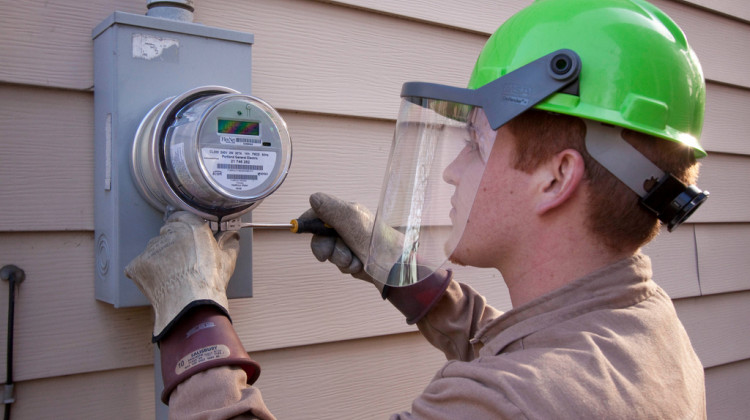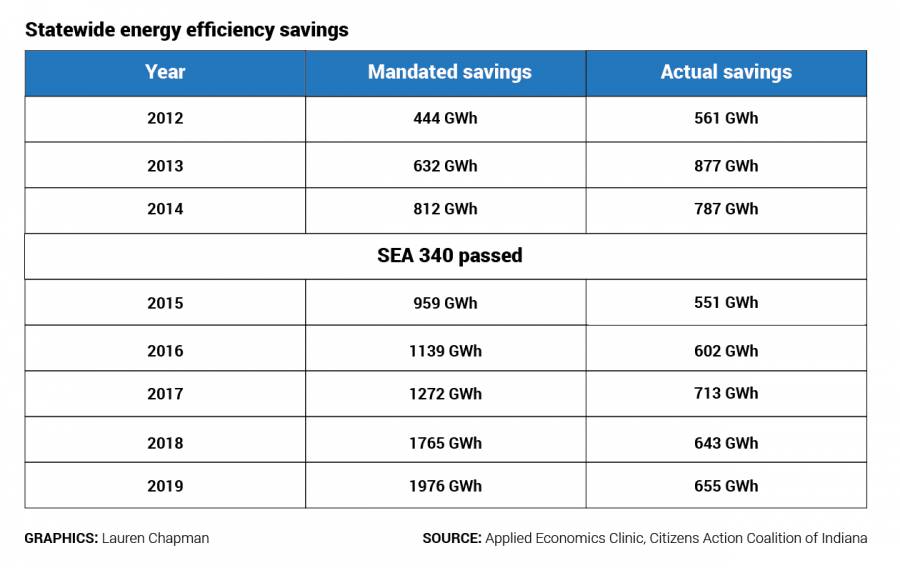
An employee of Wellington Energy Inc. works to install a new watthour meter at a residence in Portland, Oregon.
Portland General ElectricWhen Indiana repealed its energy efficiency resource standard in 2014, taxpayers missed out on about $95 million in savings and thousands of jobs. That’s according to two policy briefs by the Applied Economics Clinic, prepared for energy watchdog the Citizens Action Coalition.
The energy efficiency standard aimed for a 2 percent reduction in electricity sales by next year. The policy briefs show that once the standard was repealed and investor-owned utilities were allowed to submit their own energy efficiency plans, they saved fewer megawatt hours than in previous years — often little more than half the original mandates.
"You see it happen immediately after the repeal," says Bryndis Woods, researcher at the Applied Economics Clinic. "So in 2014 mandated savings totaled about 800 gigawatt hours. They nearly met that goal, but in 2015 the mandated savings would have been about 950 and they fell to 550."

Today customers that use more than one megawatt of energy — like industrial companies — can choose to opt out of the efficiency program. Jennifer Washburn serves as energy and environment counsel for the Citizens Action Coalition. She says energy efficiency is our cheapest resource and industry is the easiest place to trim.
“It’s going to be a lot easier for us to swap out one boiler than put in hundreds or thousands of lightbulbs at residential facilities,” says Washburn.
Tim Phelps, executive director of the Indiana Conservative Alliance For Energy, says energy efficiency is something conservative Hoosiers support. The alliance found 89 percent of Republicans were in favor of such measures in a poll last year.
“We don’t think this should be a political issue at all. Energy efficiency makes good policy and it saves Hoosiers money,” says Phelps.
The Citizens Action Coalition hopes the reports will encourage legislators to make policies that favor energy efficiency.
Indiana Environmental reporting is supported by the Environmental Resilience Institute, an Indiana University Grand Challenge project developing Indiana-specific projections and informed responses to problems of environmental change.
 DONATE
DONATE







 Support WFYI. We can't do it without you.
Support WFYI. We can't do it without you.